Category: reading
You are viewing all posts from this category, beginning with the most recent.
Life’s too short for uninteresting books

Nick Hornby, writing over at Lithub, says something that I am finding increasingly true: as you get older, life is too short to spend time on bad novels.
I try to find works of fiction, I promise, but it’s like pushing a wonky shopping trolley round a supermarket. I constantly veer off toward literary biographies, books about the Replacements, and so on, and only with a concerted effort can I push it toward the best our novelists have to offer. I suspect it’s to do with age and risk. A bad book about, say, the history of Indian railways will inevitably tell you something about railways, India, and history.
Reading a bad novel when you are approaching pensionable age, however, is like taking the time left available to you and setting it on fire.
It’s no secret that I read lots of books. For a long time my reading strategy has been one book at a time, in completionist fashion. Once I’ve put the effort in to give it a try, why not finish it so I can add it to my reading log? But more and more I pick up a book, almost always a novel, get a few chapters in, and decide I just can’t be arsed to finish it. So back it goes to the library. (Or, rarely, it gets resold to the used book store. Though I very rarely buy fiction any more when it can be borrowed instead.)
I’m at the point where my “to read” bookshelf has books that have been sitting there so long that I am no longer interested in the topics that were apparently interesting to me when I bought them. It feels like an entire next level of giving up to just throw those books in the resell pile, but, well, I’m getting older. Life’s too short to spend time in uninteresting books.
A couple recommended reads: Trusting your Heart, and Christianity as an MLM
A couple posts came through my inbox while I was traveling the last few days which I want to pass on and feel like they have some parallels:
Katelyn Beaty asks “What if you can trust your heart?”
I have written before about evangelicals’ love for playing the Jeremiah 17:9 card. This tactic is regularly used to push people into submission to their leaders’ arguments even when their internal compass says something isn’t right. Beaty calls out this unease with feelings so prevalent in Reformed evangelicalism, and says we need to pay attention to our whole selves, our gut instinct as well as our rational thought.
…I’ve only grown in the belief that our gut is always speaking and deserves to be listened to. “Gut intuition” is distinct from emotions more broadly. But both are pre-rational, something we feel in our bodies before we have the words to articulate them. And I wonder if that’s why a lot of the evangelical world has trouble honoring them: we’ve inherited a mind-body dualism that says that mind is good and the body is bad. And, of course, that the body is the realm of women: messy, “irrational,” “crazy,” prone to quick changes and fluctuations, etc. This is all Plato, not Jesus, folks…
I can’t tell you the number of stories I’ve heard that someone’s “off” feeling about a person, place, or institution proved to be disastrously true, that they should have spoken up sooner but stuffed their feelings in the name of loyalty to a leader or cause. And I wonder if we’d have fewer church scandals if Christians honored intuition as a worthy source of truth — even as a place where the Holy Spirit is speaking to or through us, if only we would listen.
I think she’s onto something there.
Second is Katharine Strange’s post on ‘Christianity vs. Therapy’. In reviewing Anna Gazmarian’s Devout: A Memoir of Doubt, Strange discusses evangelicalism’s long-standing beef with psychology and therapists. Many evangelical churches are strong on Biblical Counseling, a movement which trains laypeople to exclusively use Scripture to counsel people, a movement which is strongly antagonistic to professional psychotherapy. (Oh, do I have thoughts on this. But I’ll save them for another post.)
Strange pulls at another thread in suggesting why evangelicalism is so opposed to therapy, and it resonates with my own experience:
But I think a large part of the problem boils down to the way that Christianity is “sold” in this country. As I’ve written about before, there’s so much pressure to convert our friends and neighbors that what we often end up presenting to the world is a kind of “prosperity gospel lite”—Jesus as cure-all. Being both Christian AND a person with problems is bad for the brand.
This “multi-level marketing” version of Christianity leads to a religion that values a mask of perfection over authenticity. Belonging, in this case, means cutting off parts of ourselves, whether that’s our sexuality/gender expression, our personal struggles, or even the fact that we experience basic feelings like sadness, irritation, envy, etc. It’s toxic positivity as a ticket to sainthood. Churches that buy into this methodology create lonely people even in the midst of community (for what is belonging without authenticity?) They also have a tendency to thrust narcissistic and authoritarian types into leadership because these are precisely the kind of people who are best at never letting the mask slip. Such environments can easily erupt into abuse, religious trauma, perfectionism, and scrupulosity.
While I knew MLMs were largely fueled and run by religious people, I hadn’t ever really thought about the idea that evangelicalism is essentially selling Christianity as a sort of MLM, by MLM principles. Now I can’t unsee it.
2024 Reads: A Window to the Divine by Zachary Hayes, OFM
I just finished up a slow read of a wonderful little book. A Window to the Divine: Creation Theology by Franciscan theologian Zachary Hayes draws from Teilhard and Whitehead to suggest that we need to recognize that our approach to synthesizing modern science and creation theology needs some updating. As he notes,
…the worldview mediated to both believer and unbeliever alike by our modern culture is radically different from that which provided some key structural elements for our familiar theological vision and language.
After all, he asks,
If scientific or prescientific views of the world inter into the structure of a theology in some way, and if believers forget where a style of theology has come from and what elements have entered into its structure, what would one expect to happen when the scientific vision of the world begins to change?
In the first chapter, Hayes examines the relationship between theology and science, noting that they exist to answer very different sorts of questions. They need not exist in opposition to each other, he says.
…we will not expect science to prove faith claims, nor will we expect theology to prove the claims of science. But we will attempt to allow religious faith to express itself in terms relevant to its cultural context, which, at least in the Western world of the present, is strongly conditioned by scientific insights.
Hayes goes on to briefly examine the creation texts, suggesting a theological interpretation of the beginning of Genesis that is focused far more on God as the source and origin of creation rather than on a scientific explanation of how things came into being. He takes a chapter to discuss the origin of humans (all from Adam? or from multiple parents?) and how that view interacts with Romans 5. (As in Adam all sinned, so in Christ all will be saved…) Hayes suggests that these texts, too, should be read etiologically, that is, as discussing the cause or origin of sin and salvation, not of some literal genetic propagation of sinfulness. He bogs down a bit in a very Roman Catholic discussion of Original Sin, trying to briefly address both Augustine and the Council of Trent.
The last chapter, though, is worth the whole read, as he pulls the threads together. I will quote more liberally here, it’s just too good.
First, about sin:
Human history is a history of response, both negative and positive, to the lure of God’s love… Sin is not a mere infringement of a law extrinsic to our nature. It is a failure to realize the potential of our nature itself. If our nature is fundamentally a potential to expand, sin is a contraction… Sin is the resistance to expansion through union with others. It is the attempt to create human history in alienation from the only end that we ultimately have… Sin is a failure in the collaborative effort to move toward full personalization in human community.
And then regarding grace:
The history of God’s grace and human response finds a distinctive form of self-consciousness in the history of the Bible, and an unsurpassed level of realization in the person and destiny of Jesus Christ… God, who is love community, calls forth love community in creation through free response of human persons to the offer of divine grace.
And then, finally, about the relation of theology and science, and why it matters:
Theology need not fear science nor tremble before the power of reason. Rather both theology and science need to stand in awe in the face of the mystery that is our world and in the even greater mystery of God to which the world points…
We have no reason to assume that the mere fact of human life is the goal of the universe. What is important above all is a quality of life, not the mere fact of life. With this in mind, we can see that it is a more significant question to ask whether this sort of world is apt for the accomplishment of God’s purpose. It is, indeed, a cosmos that challenges humanity in mind and in will, and that is capable of eliciting both awe and wonder. It is a cosmos that draws humanity out of the narrow point from which it begins to expand to the mystery of the world and thus to move towards the Ground of the world. It is a world apt to stretch the finite spirit to the limits of its possibility to bring forth not only the fact of life, but a Godlike quality of life that is a created sharing in the loving thought of God from which the whole of creation emerges.
Beautiful stuff.
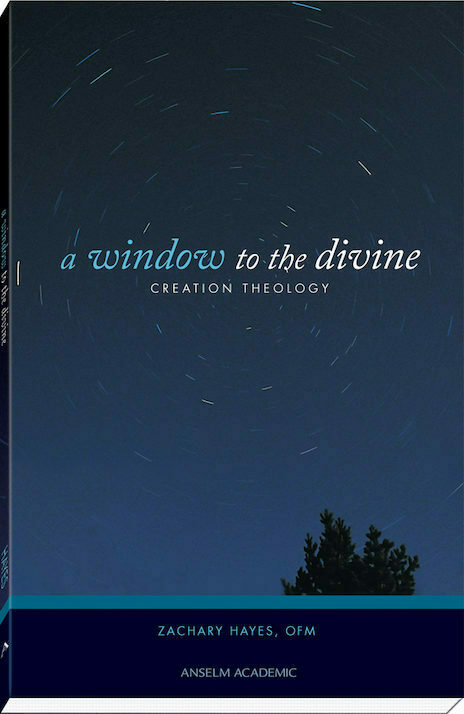
Finished reading: Reading Genesis by Marilynne Robinson
I wasn’t sure what to expect from Robinson writing on Genesis, but I enjoy her writing enough it was definitely something I was going to read. Structured as a narrative commentary, Robinson doesn’t employ chapter breaks or other touchpoints within the text itself. It’s fascinating to read a commentary by a Christian writer who takes the text seriously but not necessarily literally. If there is a broad “point” to her book, it is to feature the uniqueness of Genesis among the Ancient Near Eastern texts, and to highlight the theme of unmerited grace that runs through it. From God’s forgiveness of Cain to Joseph’s forgiveness of his brothers, Robinson tells us that Genesis is set apart from the other ANE texts this way.
I appreciated her book, but didn’t enjoy it as much as reading her essays. I need to pick them up for a re-read.
Recommended Reading: The Kingdom, The Power, and The Glory by Tim Alberta
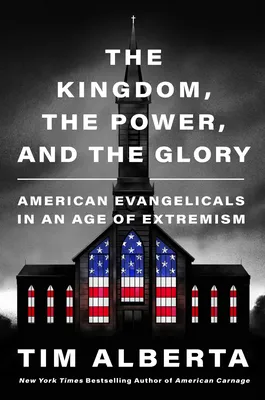
My first completed book of the year is one I can wholeheartedly recommend: The Kingdom, The Power, and The Glory by Tim Alberta. Subtitled “American Evangelicals in an Age of Extremism”, journalist Alberta’s book details his many interviews with American Evangelical leaders since the rise of Trump in 2016. He interrogates their motivations, how their words align with their actions, and how those words and actions comport with the teachings of Jesus.
Alberta is uniquely positioned to write a book like this. A professional journalist currently with The Atlantic, he has also written for, among others, Politico and The Wall Street Journal. But, as he reveals in the book’s initial chapters, he is also a pastor’s kid. His father, up until his untimely death, was the pastor of a large Evangelical Presbyterian church in Michigan. Alberta grew up a devoted Christian within that church, and continues today as a professing Christian. The Kingdom, The Power, and The Glory at places verges on memoir. But Alberta’s fluency with evangelical language, teaching, and culture give him an insight and authority that other journalists would lack.
If you have been following along in the Evangelical culture wars post-2016, most of the folks Alberta discusses will be familiar. He introduces them chapter by chapter: The Falwells and Liberty University, Robert Jeffress, and the Southern Baptist Convention. Firebrands like Greg Locke. Unabashed politicos like Ralph Reed. Fradulent historian David Barton. SBC stalwart-turned-outcast Russell Moore. Journalist Julie Roys. Pastor Brian Zahnd as a Midwestern prosperity preacher turned lonely prophet.
Whether it’s on purpose or just so close to home (for both the author and me) that Alberta couldn’t avoid it, the theme of children of Evangelicals turning and becoming their parents’ reproof played over and over through the book. Nick Olson, the son of an early Liberty student who came back to teach, only to be driven away when his politics didn’t align. Rachael Denhollender, the conservative homeschooled gymnast who, after bravely testifying against her abuser, became an advocate for sexual abuse victims within her own denomination. Cameron Strang, CEO of Relevant magazine, the son of a religious huckster. Jonathan Falwell, at a crossroads after taking over leadership of the “family business”, Liberty University. Alberta finally questions his own actions and motivations. Would he have been willing to ask these questions, to write this book, were his father still alive and in the pastorate? That question remains forever unknown. I understand, at least a little bit, Alberta’s quandary.
Over the past decade a pattern has emerged for me. When I encounter someone from my generation, usually online, who speaks with a resonant voice of sanity about America’s religion and politics, it turns out they, like me, grew up evangelical, usually homeschooled, and have spent their adult lives forging a path out. I’m thinking of people like author Lyz Lenz, new NYT film critic Alissa Wilkinson, writer and editor (and Alissa’s former podcast-hosting sidekick) Sam Thielman, NPR journalist Sarah McCammon, and famous lawyer spouse Jacob Denhollander, kindred spirits all. I’m now going to add Tim Alberta to that list.
At the end of the book, Alberta expresses an uncertain hope that this younger generation is successfully turning the evangelical world away from the worst of its political debauchery. To my mind, that jury is still out. Leader after leader throughout the book express their befuddlement and confusion as to why so much of the Evangelical church has been willing to follow political prophets away from the call of Jesus. Like them, Alberta doesn’t have the answer. But with this book, he has done what he can: incontrovertably documenting the political corruption of the American Evangelical church for anyone willing to read it.
My 2023 Reading in Review
Another year full of books! (Previous summaries: 2022, 2021, 2020, 2019, 2018, 2017, 2016, 2015, 2014, 2013, 2012, 2011, 2010, 2009, 2008, 2007…
I read 72 books for the year, which feels like a nice even number. There’s still a lot of theology and science fiction in the list, but I read more science this year, along with several memoirs.
Here’s the full list of reading, with particular standouts noted in bold:
Theology
- Out of the Embers: Faith After the Great Deconstruction by Bradley Jersak
- On the Soul and the Resurrection by St. Gregory of Nyssa
- Reparations: A Christian Call for Repentance and Repair by Duke L. Kwon
- Sanctifying Interpretation: Vocation, Holiness, and Scripture by Chris E. W. Green
- The Peaceable Kingdom: A Primer in Christian Ethics by Stanley Hauerwas
- Art and Faith: A Theology of Making by Makoto Fujimura
- Not All Who Wander (Spiritually) Are Lost by Traci Rhodes
- A Hidden Wholeness: The Journey Toward an Undivided Life by Parker J. Palmer
- Trauma-Informed Evangelism: Cultivating Communities of Wounded Healers by Charles Kiser
- Christ in Evolution by Ilia Delio
- Breathing Under Water: Spirituality and the Twelve Steps by Richard Rohr
- The Phenomenon of Man by Pierre Teilhard de Chardin
- The New Being by Paul Tillich
Green is wonderful here. I posted a few excerpts while reading it that would be a good introduction.
Science and History
- The Evolution of Knowledge: Rethinking Science for the Anthropocene by Jurgen Renn
- Unmasking Autism: Discovering the New Faces of Neurodiversity by Devon Price
- Fundamentals of Software Architecture: An Engineering Approach by Mark Richards
- Mindsight: The New Science of Personal Transformation by Daniel J. Siegel
- The Technology Trap: Capital, Labor, and Power in the Age of Automation by Carl Benedikt Frey
- Out of the Wreckage: A New Politics in the Age of Crisis by George Monbiot
- The Book of Genesis: A Biography by Ronald Hendel
- Digging Up Armageddon: The Search for the Lost City of Solomon by Eric H. Cline
- Secular Faith: How Culture Has Trumped Religion in American Politics by Mark Alan Smith
- Until the End of Time: Mind, Matter, and Our Search for Meaning in an Evolving Universe by Brian Greene
- The Book of Job: A Biography by Mark Larrimore
- On the Origina of Time: Stephen Hawking’s Final Theory by Thomas Hertog
- Quantum Reality by Nick Herbert
- The Talmud: A Biography by Barry Scott Wimpfheimer
- The Case Against Reality: Why Evolution Hid the Truth from Our Eyes by Donald D. Hoffman
Memoir and Biography
- Every Good Boy Does Fine: A Love Story, in Music Lessons by Jeremy Denk
- Still Just a Geek: An Annotated Memoir by Wil Wheaton
- Agent Josephine: American Beauty, French Hero, British Spy by Damien Lewis
- Heretic: A Memoir by Jeanna Kadlec
- Joel on Software by Joel Spolsky
- God on the Rocks: Distilling Religion, Savoring Faith by Phil Madeira
- All My Knotted-Up Life: A Memoir by Beth Moore
- Mystics and Zen Masters by Thomas Merton
- Birth of a Dancing Star: My Journey from Cradle Catholic to Cyborg Christian by Ilia Delio
- How Far the Light Reaches: A Life in Ten Sea Creatures by Sabrina Imbler
- Being Heumann: An Unrepentant Memoir of a Disability Rights Activist by Judith Heumann
- Making It So: A Memoir by Patrick Stewart
I posted some appreciation for Stewart before I got my hands on his memoir. The memoir did not disappoint. He’s an imperfect, lovely man. The book was a pleasure to read. Also, he’s a great example of why we need funding for arts and arts education. But I digress.
Other Miscellaneous Non-Fiction
- My Bright Abyss by Christian Wiman
- Oscar Wars: A History of Hollywood in Gold, Sweat, and Tears by Michael Schulman
- The Ultimate Quest: A Geek’s Gude to (The Episcopal) Church by Jordan Haynie Ware
- Transitions: Making Sense of Life’s Changes by William Bridges
Fiction
- The Three-Body Problem by Liu Cixin (re-read)
- A Closed and Common Orbit by Becky Chambers (re-read)
- Dead Lions by Mick Herron
- Don’t Cry for Me by Daniel Black
- The Passenger by Cormac McCarthy
- The Bayern Agenda by Dan Moren
- Record of a Spaceborn Few by Becky Chambers
- Tomorrow, and Tomorrow, and Tomorrow by Gabrielle Zevin
- Hunting Time by Jeffrey Deaver
- Ordinary Monsters by J. M. Miro
- The Mountain in the Sea by Ray Nayler
- The Morning Star by Karl Ove Knausgard
- Babel by R. F. Kuang
- Translation State by Ann Leckie
- Average Jones by Samuel Hopkins Adams
- The Odyssey by Homer, trans. Emily Wilson
- Red Queen by Juan Gomez-Jurado
- The Left Hand of Darkness by Ursula K. Le Guin
- The Fifth Season by N. K. Jemisin
- Blackouts by Justin Torres
- Starter Villain by John Scalzi
- The Testament of Mary by Colm Toibin
- Girl One by Sara Flannery Murphy
- Titanium Noir by Nick Harkaway
- My Old Home: A Novel of Exile by Orville Schell
- The Helsinki Affair by Anna Pitoniak
- Time’s Mouth by Edan Lepucki
- The Collector by Daniel Silva
Schell’s epic story following a young man’s life growing up in 20th century China is beautiful and tragic and very worth the read.
Summary
One of my goals from previous years was to read fewer books written by white guys. By my count, 24 of this year’s books meet that goal… which isn’t as good as I’d hoped it would be. That science section didn’t help in that regard. I made a stronger shift this year, though, away from theology and to science. That wasn’t super-intentional, but just where my interest was at the time.
On to 2024! I’m nearly halfway through my first book of the year.
My 2022 Reading in Review
Another year full of books! (Previous summaries: 2021, 2020, 2019, 2018, 2017, 2016, 2015, 2014, 2013, 2012, 2011, 2010, 2009, 2008, 2007… argh, how did I miss some of those years?)
I got through 61 books this year, which feels like a bit of a down year. My “one book at a time” practice got me bogged down in some slow theology books, and then I got sucked into a cross-stitch project and a couple web projects at the end of the year which stole some of my reading time. (I finally came to grips with breaking up the long theology slogs with some fiction, and that helps a lot.)
Here’s the full list of reading, with particular standouts noted in bold:
Theology
- Heavy Burdens: Seven Ways LGBTQ Christians Experience Harm in the Church - Bridget Eileen Rivera
- Happiness and Contemplation - Josef Pieper
- The Aryan Jesus - Susannah Heschel
- The Joy of Being Wrong - James Alison
- Attached to God: A Practical Guide to Deeper Spiritual Experience - Krispin Mayfield
- The Emergent Christ - Ilia Delio
- The Beatitudes Through the Ages - Rebekah Ann Eklund
- Let the Light In: Healing from Distorted Images of God - Colin McCartney
- In: Incarnation and Inclusion, Abba and Lamb - Brad Jersak
- Having the Mind of Christ - Matt Tebbe and Ben Sternke
- The Dark Interval - John Dominic Crossan
- Love Over Fear - Dan White, Jr.
- Faith Victorious - Lennart Pinomaa
- History and Eschatology - N. T. Wright
- Destined for Joy - Alvin F. Kimel
- A Thicker Jesus - Glen Harold Stassen
- Changing Our Mind - David P. Gushee
Dr. Ilia Delio’s The Emergent Christ is the one that had me thinking the most this year, and that will stick with me longer than any of the others. Her approach to thinking about God, evolution, and universal progress within a Christian framework blew my mind, and consistently challenges me to think about God and the universe differently.
Other Non-Fiction
- Maximum City - Suketu Mehta
- Music is History - Ahmir “Questlove” Thompson
- The Argonauts - Maggie Nelson
- How the Word Is Passed - Clint Smith
- The New Abolition - Gary Dorrien
- Reading Evangelicals - Daniel Silliman
- Fearful Symmetry - A. Zee
- The Joshua Generation - Rachel Havrelock
- Belabored - Lyz Lenz
- The Method - Isaac Butler
- The Dead Sea Scrolls - John J. Collins
- Strange Rites - Tara Isabella Burton
- A Different Kind of Animal - Robert Boyd
- The Dawn of Everything - David Graeber and David Wengrow
- Bible Nation - Candida R. Moss and Joel S. Baden
- Protestants Abroad - David A. Hollinger
- Do I Make Myself Clear? - Harold Evans
- White Flight - Kevin M. Kruse
- How God Becomes Real - T. M. Luhrmann
- Salty - Alissa Wilkinson
- Blood In The Garden: The Flagrant History of the 1990s New York Knicks - Chris Herring
- Searching for the Oldest Stars - Anna Frebel
- This Here Flesh - Cole Arthur Riley
- The Invention of Religion - Jan Assmann
- The Phoenix Project - Gene Kim, George Spafford, and Kevin Behr
- The Late Medieval English Church - G. W. Bernard
- The Life of Saint Teresa of Avila - Carlos Eire
- Strangers in Their Own Land - Arlie Russell Hochschild

Three women’s books stand out here: Tara Isabella Burton’s Strange Rites, looking at how the current generation of young people are looking for religious experiences in places other than traditional religion; Cole Arthur Riley’s spiritual memoir This Here Flesh, and Arlie Russell Hochschild’s Strangers in Their Own Land, describing a sociologist’s quest to understand Louisianans who have been devastatingly impacted by environmental destruction and yet persistently support the businesses and political causes behind that destruction.
Fiction
- Unthinkable - Brad Parks
- Lent - Jo Walton
- The Last Commandment - Scott Shepherd
- When We Cease To Understand the World - Benjamin Labatut
- Everything Sad Is Untrue - Daniel Nayeri
- Once A Thief - Christopher Reich
- A Deadly Education - Naomi Novik
- The Blue Diamond - Leonard Goldberg
- A Psalm for the Wild-Built - Becky Chambers
- The Coffin Dancer - Jeffery Deaver
- Sea of Tranquility - Emily St. John Mandel
- Small Things Like These - Claire Keegan
- A Prayer for the Crown-Shy - Becky Chambers
- A Long Way to a Small, Angry Planet - Becky Chambers (re-read)
- Slow Horses - Mick Herron
- The Last Agent - Robert Dugoni

Here the standout was author Becky Chambers. Her little Monk & Robot novellas sucked me in and made me happy. That prompted me to purchase her Small Angry Planet series and start in on a re-read. Chambers works in the best tradition of science fiction pushing for inclusion and acceptance of The Other and in using the exploration of a very different universe to make you think about how our own could be improved.
Coming Up…
I’ve continued to log on Goodreads this past year but I get the feeling it’s spooling down as it gets absorbed by Amazon. I’m working on a self-hosted book logging site - it’s actually live online right now if you know where to look but I’m going to do some cleanup on it before I publicize it. I’ll post here about it when I do!
2019 Reading, Compendium #4
Goodness, I’ve let this go a while without providing a list. Here we go…
Anointed with Oil: How Christianity and Crude Made Modern America by Darren Dochuk
A fascinating look at how the oil industry worked hand in hand with evangelical Christianity to shape America in the 20th century. Read Heath W. Carter’s 5-star review over at Christianity Today.
The Rule of Law by John Lescroart
Meh. This series has gone on far too long at this point.
My Antonia by Willa Cather
Easily my favorite of Cather’s Prairie Trilogy.
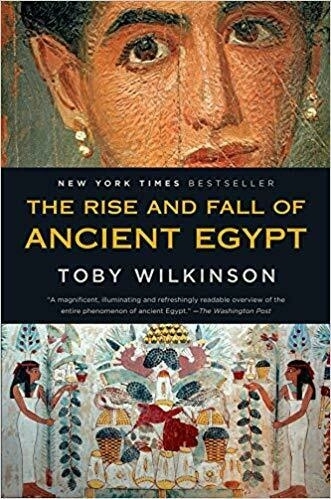
The Rise and Fall of Ancient Egypt: The History of a Civilization from 3000 BC to Cleopatra by Toby Wilkinson
The book wasn’t quite as long as the empire. Still trying to get my head around a legitimate empire that spanned millennia. Astounding.
Palace Walk by Naguib Mahfouz
I remember almost nothing about this book.
On The Neurobiology of Sin by Lazar Puhalo
A short treatise by an Orthodox bishop addressing, among other things, homosexuality and transgenderism. Reads like an undergraduate-level paper on genetics combined with a couple weak blog posts on theology. I was disappointed.
The Inner Kingdom by Kallistos Ware
A collection of essays from an Eastern Orthodox bishop.
God Land: A Story of Faith, Loss, and Renewal in Middle America by Lyz Lenz
I have a complicated relationship with this book, but I think it has some good insights about the church in the Midwest.
Last Day by Domenica Ruta
An interesting concept for a novel that never really came together.
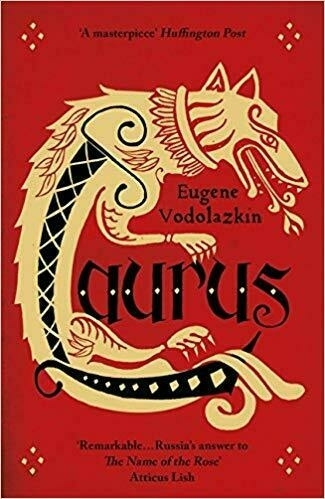
Laurus by Eugene Vodolazkin
Now this one was well worth reading. A beautiful novel about a medieval Russian “holy fool”. Rod Dreher has a nice piece about it if you want to read more.
Normal People by Sally Rooney
Maybe normal people are boring. Or at least this book was.
Reading Romans Backwards: A Gospel of Peace in the Midst of Empire by Scot McKnight
Start at the end of Romans, Dr. McKnight says, understand the context and audience, and then work your way back to get a better perspective on what the doctrinal passages mean. Interesting.
The Bird King by G. Willow Wilson
Picked up at random off the library shelf. A fantasy novel from a Middle Eastern Muslim perspective. Enjoyed it, though didn’t feel like the last third held up to the promise of the first two-thirds.
The Christian Imagination: Theology and the Origins of Race by Willie James Jennings
Oh man, this one was thick. A hard read but some good insight.
Alif the Unseen by G. Willow Wilson
The other book I read by Wilson the past couple months. Sort of a cyberpunk fantasy novel set in the Arab Spring in Egypt. Dug it.
The Orthodox Church: An Introduction to Eastern Christianity by Kallistos Ware
A historical and doctrinal primer by one of the esteemed bishops of the Orthodox Church.
Stokely: A Life by Peniel E. Joseph
A biography of Stokely Carmichael, the founder of the Black Panther Party. Knew nothing about him before reading the book. Quite a charismatic guy.
What Is a Girl Worth?: My Story of Breaking the Silence and Exposing the Truth about Larry Nassar and USA Gymnastics by Rachael Denhollander
I knew this woman was a hero for publicly coming forward with allegations of sexual abuse against Nasser. What I didn’t realize before reading the memoir was how integral she was in every part of building and executing the case against him. So much to love about this book and its heroes, Rachael and her faithful husband Jacob.
Dignity: Seeking Respect in Back Row America by Chris Arnade
This one really merits its own post. Arnade traveled the country exploring “back row America” and its people. Gripping personal narratives and photography.
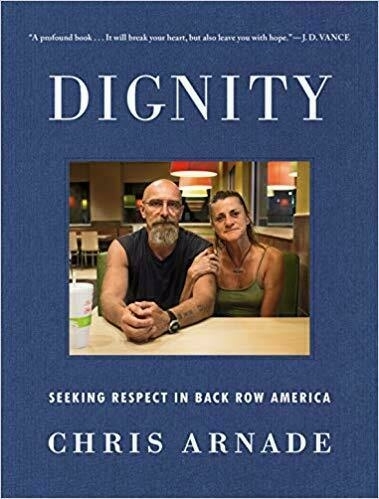
2019 Reading, Compendium #3
A few added to my list…
Good Omens: The Nice and Accurate Prophecies of Agnes Nutter, Witch by Terry Pratchett and Neil Gaiman
Somehow I’d not read this before, and with all the buzz on the Amazon TV series, figured it was worth giving it a try. I find Pratchett an acquired taste… one which I’m not totally on board with yet. Still, a fun read.
Paul and Gender: Reclaiming the Apostle’s Vision for Men and Women in Christ by Cynthia Long Westfall
Dr. Westfall brings her incredible expertise in Greek to bear on the Pauline texts about gender and gender roles within the church. Thorough and scholarly yet readable, she makes a strong case for an egalitarian position. Worth a read if you’re interested in this area of debate.
The Song of the Lark by Willa Cather
Continuing my read of Cather’s Great Plains Trilogy… a nice change of pace.
God in the Rainforest: A Tale of Martyrdom and Redemption in Amazonian Ecuador by Kathryn T. Long

Say the names Jim and Elisabeth Elliot to anybody who grew up in the evangelical church and you’ll almost certainly get quick recognition of the story of missionaries trying to reach a remote Ecuadorian tribe, and of the five men who were killed by that tribe after initiating contact. Elisabeth Elliot’s account of their efforts in Through Gates of Splendor became a bestseller the year after their deaths.
In God in the Rainforest, Dr. Long (Professor Emerita of History at Wheaton College) gives a historian’s critical eye to the long story of missionary contact and involvement with the Huaorani people in Ecuador. She manages to be incredibly evenhanded, avoiding the hagiography of Through Gates of Splendor and its follow-ups and examining the effects (both positive and negative) of the introduction of Western culture and Christianity to a previously unreached people group.
This one got particularly interesting for me because my wife’s parents served for decades with one of the missions organizations involved there and know those people, to the point that at least one of the people named in the book attended our wedding.
Separating missions work from our Western impulse to colonialize is an ongoing struggle. God in the Rainforest gives a fair view of how that struggle played out in the jungles of Ecuador in the second half of the 20th century.
How to Forget: A Daughter’s Memoir by Kate Mulgrew
I don’t remember who recommended this one. Turns out it was a short but not easy read. Mulgrew (probably best known as an actress for playing Captain Janeway on Star Trek: Voyager) didn’t have a very happy childhood or very good relationship with her parents. Mulgrew uses uses the story of her parents’ final years to frame her reflections on her childhood and younger life, and grapples with how to deal with the realities of her youth as she looks back.
2019 Reading, Compendium #2
Trying to not get my book lists get so backed up this time. Here’s what I’ve been reading recently:
Golden State by Ben H. Winters
This one underwhelmed me a bit - interesting concept of a society where everything is logged and speaking falsehood is against the law, but execution wasn’t so interesting.
Mission Critical by Mark Greaney
Sometimes you just need a spy thriller. But maybe not this spy thriller.
O Pioneers! by Willa Cather
I’ve never read Cather’s novels before, and felt some midwestern hankering for Nebraska-based writing. Now I need to get through the other two in the trilogy.
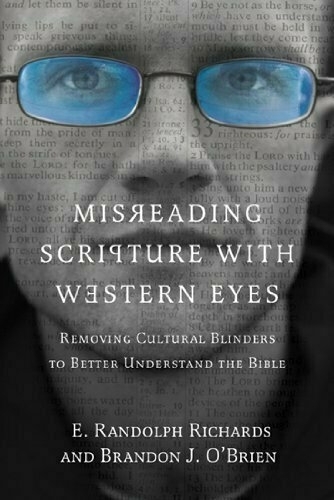
Misreading Scripture with Western Eyes: Removing Cultural Blinders to Better Understand the Bible by E. Randolph Richards and Brandon J. O’Brien
Richards and O’Brien are trying to help us understand that some of the texts that we so easily read and interpret through a 21st century American framework can have some significantly different meanings when seen through the cultural framework of the original audience. Worth a read, though not quite as earth-shattering as some of the reviews had led me to believe.
The Immortal Life of Henrietta Lacks by Rebecca Skloot
Henrietta Lacks was an African American woman whose cells were taken as a medical sample when she was in the hospital for cancer treatment. Those cells proved remarkably resilient and have become the base cell samples for medical experiments around the world to this day. Henrietta’s story itself is a rather slim part of the book; it revolves far more around race and poverty and its impact on the family she left behind.
Talent by Juliet Lapidos
This was a random selection from the library shelf that didn’t live up to its blurbs. Claimed to be a “deliciously funny” novel grappling with the source of creative inspiration and talent. Meh.
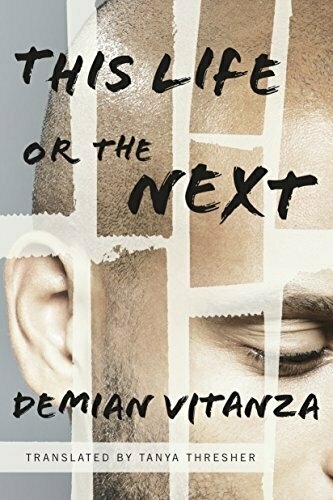
This Life or the Next by Demian Vitanza
A novel written as a first-person account of a Pakistani Muslim immigrant to Norway who went to fight with ISIS in Syria. Fiction, but based on accounts given to the author by a man currently serving time in a Norwegian prison for terrorism. Challenging to see an “enemy” through his own eyes.
A Song for Nagasaki: The Story of Takashi Nagai: Scientist, Convert, and Survivor of the Atomic Bomb by Paul Glynn
Biography, faith story, and harrowing account of surviving the Nagasaki atomic bombing all rolled into one. Really enjoyed this book. Planning to pass it along to my high school daughter to read.
The Radium Girls: The Dark Story of America’s Shining Women by Kate Moore
An account of an early workplace safety issue and court case where young women worked painting radium onto watches to make the faces luminescent. It’s an unsurprising story in most ways: a workplace hazard that, once understood by the corporation, was denied and covered up in order to maintain profits. The continual and vivid descriptions of the horrible effects of radium poisoning on these women’s bodies may have felt necessary to the author to raise the stakes of the story, but they were so vivid and plentiful that I just about put the book down because I could take any more talk of rotting jawbones and gushing pus.
And just so the last words in my blog post aren’t “gushing pus”, let me note that I’m still working on Rebecca West’s Black Lamb and Grey Falcon. It’s just gonna take me a while.